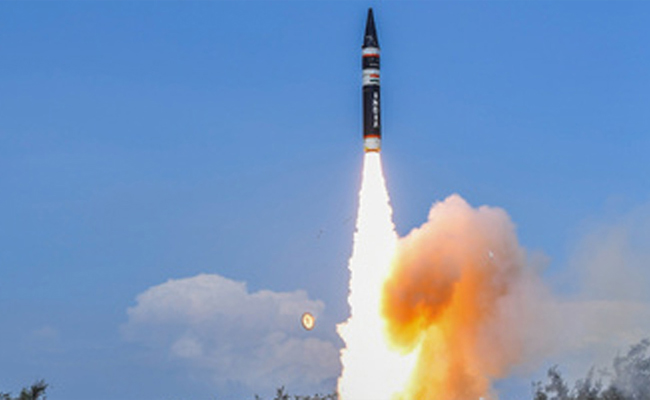New Delhi, June 25: The CBI has sent a fresh request for extradition of middleman Carlo Gerosa in the Rs 3,600-crore AgustaWestland VVIP chopper deal case to the Italian government through the Ministry of External Affairs here, sources said on Monday.
The move comes after Italy refused India's request to extradite Gerosa, saying it did not have any mutual legal assistance treaty.
A Central Bureau of Investigation (CBI) source related to the development said that under the Italian law, there is provision to extradite a person wanted in any case after fulfilling certain criteria.
"Thus, the CBI has reminded Italy about its law under which Gerosa can be extradited to India," he said.
He also said that the extradition request has been sent through the diplomatic channel.
According to CBI officials, Gerosa, 70, is one of the three alleged middlemen wanted in this case and his interrogation and statement is very important for both the Enforcement Directorate (ED) and the CBI, who are probing the case.
In October last year, Italian authorities, on the basis of an Interpol notice sought by the ED in connection with its money laundering probe in the choppers deal case, had arrested Gerosa but soon released him.
The ED had last year notified an Interpol red corner notice (RCN) against Gerosa and two others -- Briton Christian Michel James and Italian Guido Haschke.
The CBI has already filed a chargesheet in this case, in which the three are co-accused.
The CBI named former Indian Air Force chief S.P. Tyagi, his cousin Sanjeev alias Julie, then IAF Vice Chief J.S. Gujral and advocate Gautam Khaitan as the four Indians in the chargesheet, which mentioned Khaitan as the "brain" behind the deal.
Others named are Italian defence and aerospace major Finmeccanica's former chief Giuseppe Orsi, former AgustaWestland CEO Bruno Spagnolini and middlemen Michel, Haschke and Gerosa.
On January 1, 2014, India scrapped the contract with Finmeccanica's British subsidiary AgustaWestland for supplying 12 AW-101 VVIP choppers to the IAF over alleged breach of contractual obligations and charges of paying kickbacks to the tune of Rs 423 crore by it for securing the deal.
The CBI, which registered an FIR in the case on March 12, 2013, has alleged that Tyagi and the other accused received kickbacks from AgustaWestland to help it win the contract. The FIR mentioned charges of criminal conspiracy, cheating and the Prevention of Corruption Act.
The CBI said the company was favoured in lieu of illegal gratification accepted through different companies in the name of consultancy services.
According to the CBI, Tyagi took bribes of several crores, through middlemen and a complex route of companies in several countries, from AgustaWestland to change the specifications of the contract -- reducing the operational flight ceiling from 6,000 metres, as originally proposed, to 4,500 metres and bringing down the cabin height to 1.8 metres.
The twin modifications were allegedly meant to rig the deal in favour of AgustaWestland, which eventually walked away with the order to supply 12 choppers for the Communication Squadron of the IAF for ferrying the President, the Prime Minister and other VVIPs.
The CBI probe revealed that several payments were made to the Tyagis by Haschke, Gerosa and Michel as part of the alleged bribery.
Tyagi, who was IAF chief from 2004 to 2007, his cousin and Khaitan were arrested in December last year by the agency in connection with the case.
Let the Truth be known. If you read VB and like VB, please be a VB Supporter and Help us deliver the Truth to one and all.
Alappuzha, (Kerala) (PTI): Four doctors in Kerala have been booked for allegedly failing to detect genetic disorders in a newborn while it was still in the mother's womb, the police said on Thursday.
The accused include two female doctors attached to the Kadappuram Government Women and Child Hospital in Alappuzha, along with two doctors from private diagnostic labs, according to the Alappuzha South police.
The police registered an FIR on Tuesday based on a complaint lodged by Anish and Surumi, a couple from Alappuzha.
They alleged that the doctors failed to detect or disclose the genetic abnormalities during prenatal scans, instead assuring them that the reports were normal.
The couple also claimed that they were shown the baby only four days after delivery, according to the complaint.
The FIR stated that Surumi, 35, was undergoing treatment for her third pregnancy at Kadappuram Women and Child Hospital.
On October 30, Surumi was admitted for delivery. However, she was referred to Government Medical College Hospital (MCH) in Vandanam, Alappuzha, citing the absence of fetal movement and heartbeat, the FIR said.
On November 8, the baby was delivered following surgery at MCH and was found to have severe internal and external deformities, the FIR stated.
Meanwhile, one of the accused doctors, responding to the allegations, said she had treated Surumi only during the initial months of her pregnancy.
"I provided care for three months at the beginning of her pregnancy. The reports shown to me indicated issues with the fetus's growth," she said.
The doctors associated with the diagnostic labs, however, maintained that there were no errors in the scan reports.
The police registered a case invoking Sections 125 (act endangering life or personal safety of others), 125 (b) (where grievous hurt is caused, shall be punished with imprisonment of either description for a term which may extend to three years, or with fine which may extend to ten thousand rupees, or with both) of Bharatiya Nyaya Sanhita (BNS) against the accused.





